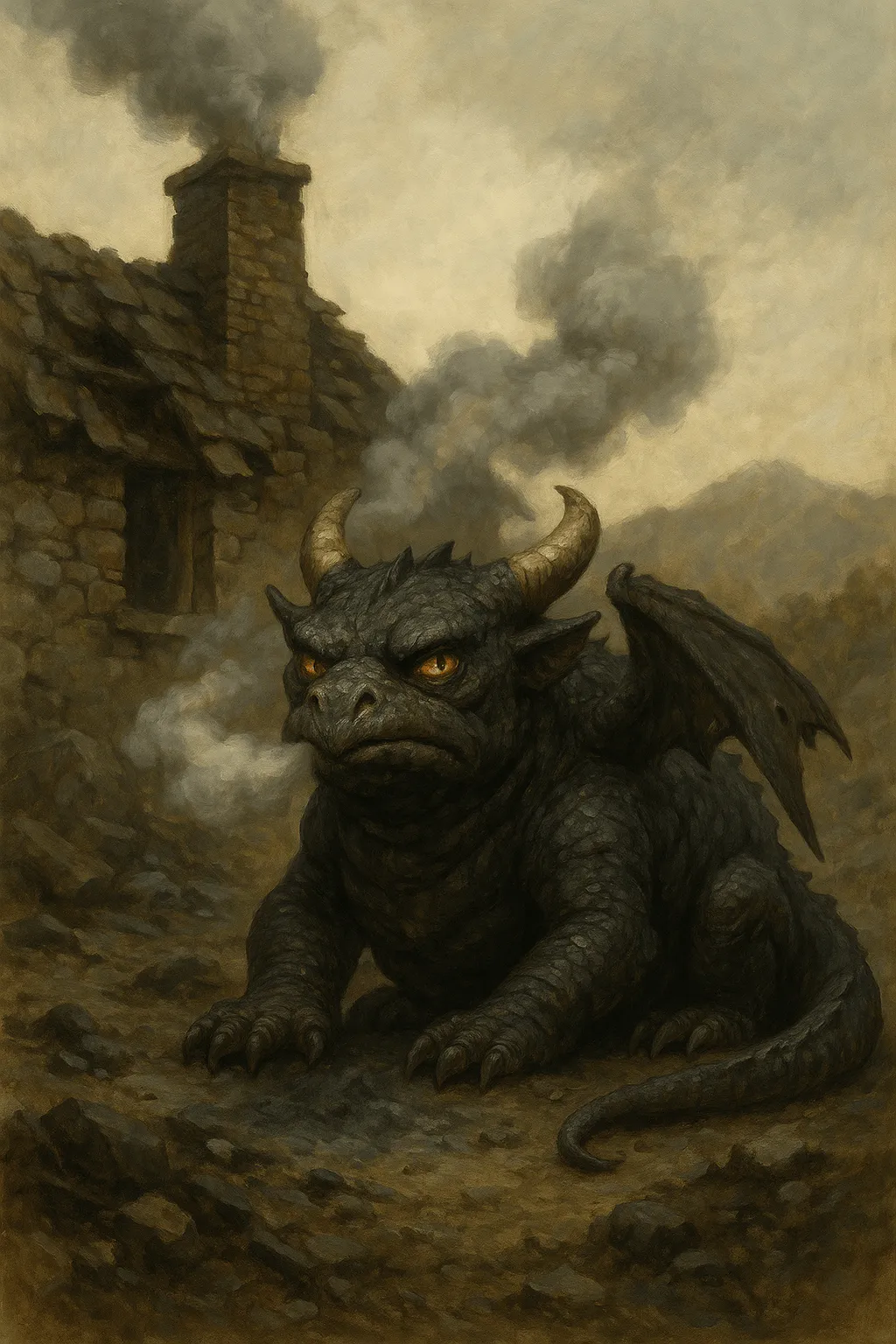
Naps on shiny things, maker help you if you try to move either.
Of all the dragons chronicled in the great bestiaries of old, few inspire less awe—or more grudging respect—than the Drabwing. Roughly the size of a mule and shaped like a winged salamander whose flight dreams were dashed halfway through creation, the Drabwing is a squat, coal-colored reptile found near old quarries, sulfur vents, and the warm bones of extinct volcanoes.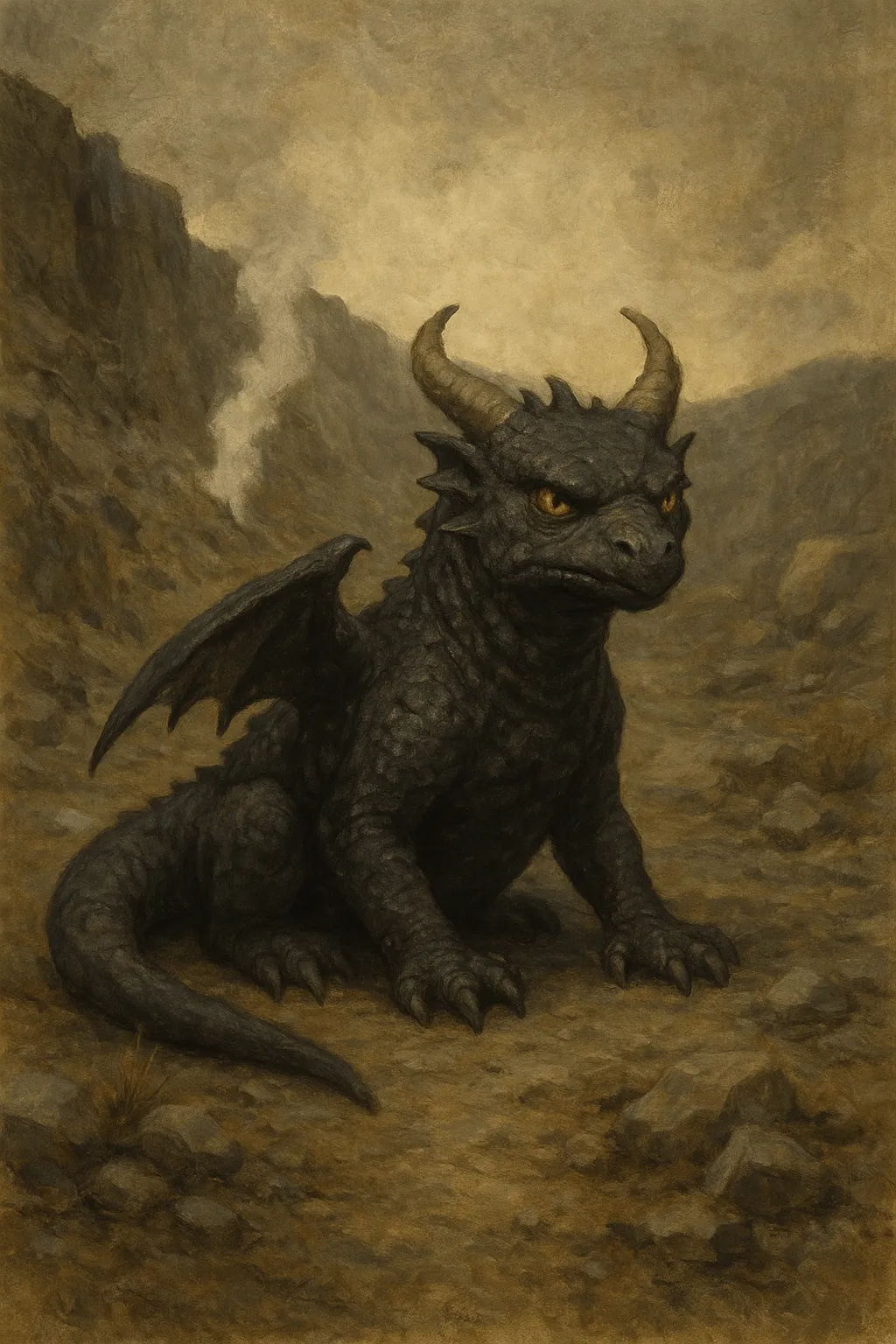 It cannot fly, though it has stunted wings it flutters when agitated, much like a rooster puffing its feathers before a fight it has no chance of winning.
It cannot fly, though it has stunted wings it flutters when agitated, much like a rooster puffing its feathers before a fight it has no chance of winning.
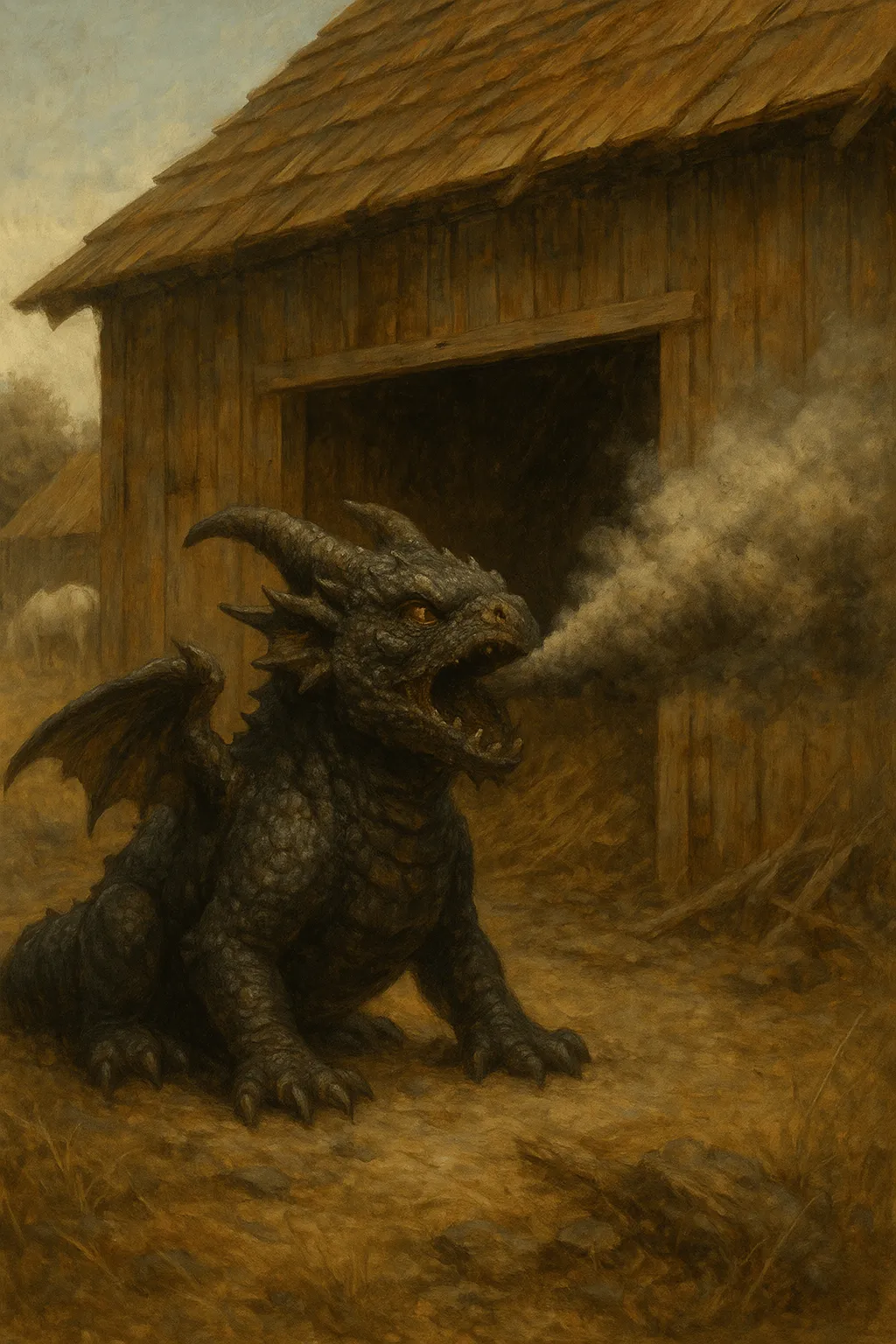 Farmers, miners, and rural scavengers across many lands know of the Drabwing, if not by name then by nuisance: barn roof tiles warped with heat, the acrid smell of burnt hay, and the unmistakable coughing fits of livestock that wandered too close to the creature’s sleeping mound. Its breath is not fire in the classical sense, but a gout of dry, choking ash—sufficient to blind or disorient, but rarely lethal unless one is already cornered in a dry well or enclosed space. The ash, curiously, contains mild magical trace elements, and some hedge wizards collect it to brew grounding tonics or incense said to repel anxiety. This has unfortunately led to rumors that inhaling fresh Drabwing ash boosts virility or second sight, resulting in the occasional charlatan getting singed—or bitten—for their trouble.
Farmers, miners, and rural scavengers across many lands know of the Drabwing, if not by name then by nuisance: barn roof tiles warped with heat, the acrid smell of burnt hay, and the unmistakable coughing fits of livestock that wandered too close to the creature’s sleeping mound. Its breath is not fire in the classical sense, but a gout of dry, choking ash—sufficient to blind or disorient, but rarely lethal unless one is already cornered in a dry well or enclosed space. The ash, curiously, contains mild magical trace elements, and some hedge wizards collect it to brew grounding tonics or incense said to repel anxiety. This has unfortunately led to rumors that inhaling fresh Drabwing ash boosts virility or second sight, resulting in the occasional charlatan getting singed—or bitten—for their trouble.
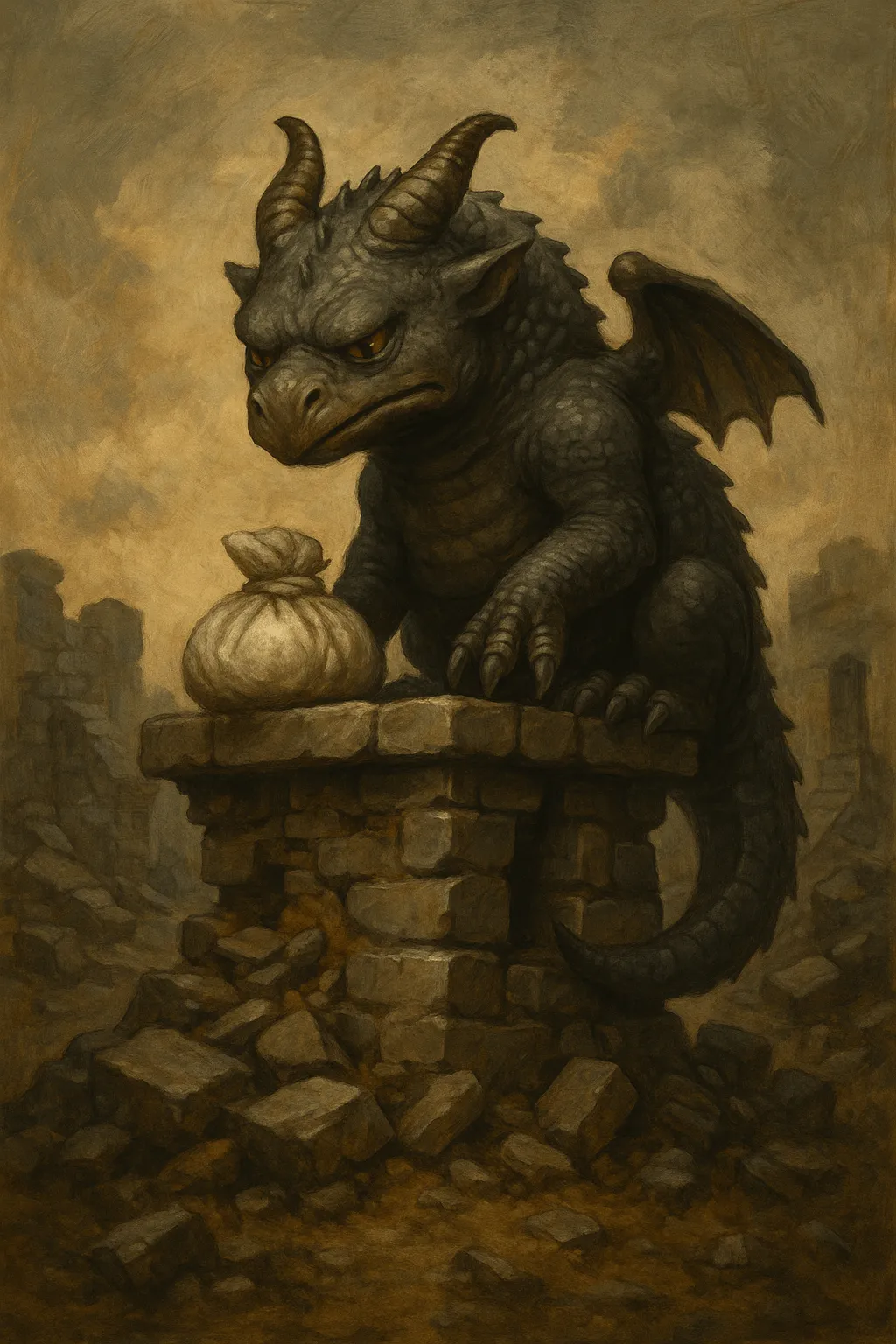 Despite their stunted stature and unimpressive hoards—usually consisting of shiny metal scraps, old belt buckles, and the occasional bent spoon—Drabwings retain a pride that borders on the delusional. They will guard a crumbling chimney with the same fury as a great wyrm defending a golden vault. They do not speak, but their body language is expressive: tilting their horned heads, stamping clawed feet, and issuing a series of huffs and snorts that communicate frustration, hunger, or the need for space.
Despite their stunted stature and unimpressive hoards—usually consisting of shiny metal scraps, old belt buckles, and the occasional bent spoon—Drabwings retain a pride that borders on the delusional. They will guard a crumbling chimney with the same fury as a great wyrm defending a golden vault. They do not speak, but their body language is expressive: tilting their horned heads, stamping clawed feet, and issuing a series of huffs and snorts that communicate frustration, hunger, or the need for space.
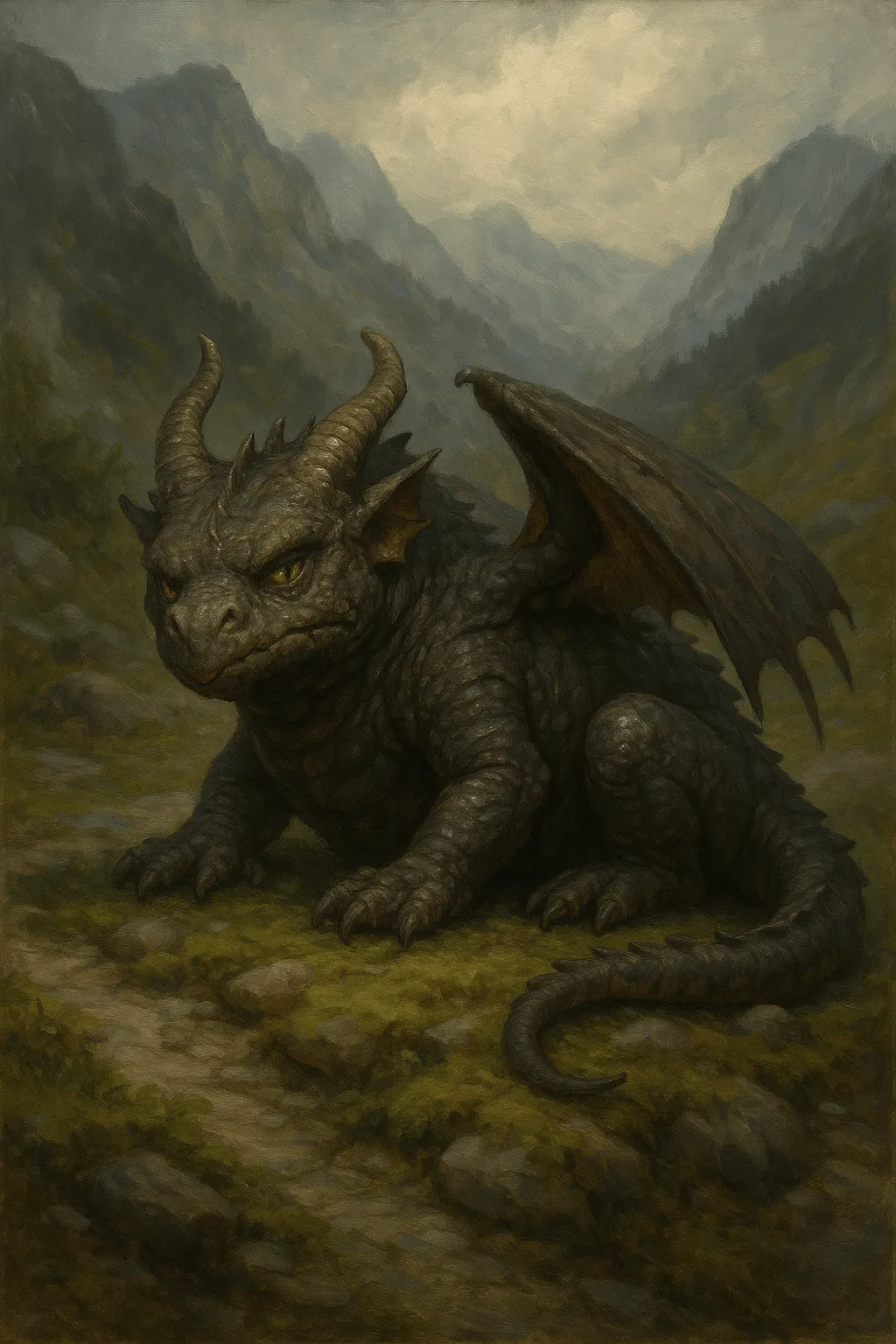 In some regions, superstitions say Drabwings bring luck to coal miners, while others insist their presence means a mine is cursed. In the Altmarch Hills, it is said that offering a Drabwing a boiled egg wrapped in cloth will ensure safe tunneling for seven days. No one knows if the Drabwings care, but they have been observed dragging such offerings into burrows and falling asleep atop them with visible satisfaction.
In some regions, superstitions say Drabwings bring luck to coal miners, while others insist their presence means a mine is cursed. In the Altmarch Hills, it is said that offering a Drabwing a boiled egg wrapped in cloth will ensure safe tunneling for seven days. No one knows if the Drabwings care, but they have been observed dragging such offerings into burrows and falling asleep atop them with visible satisfaction.
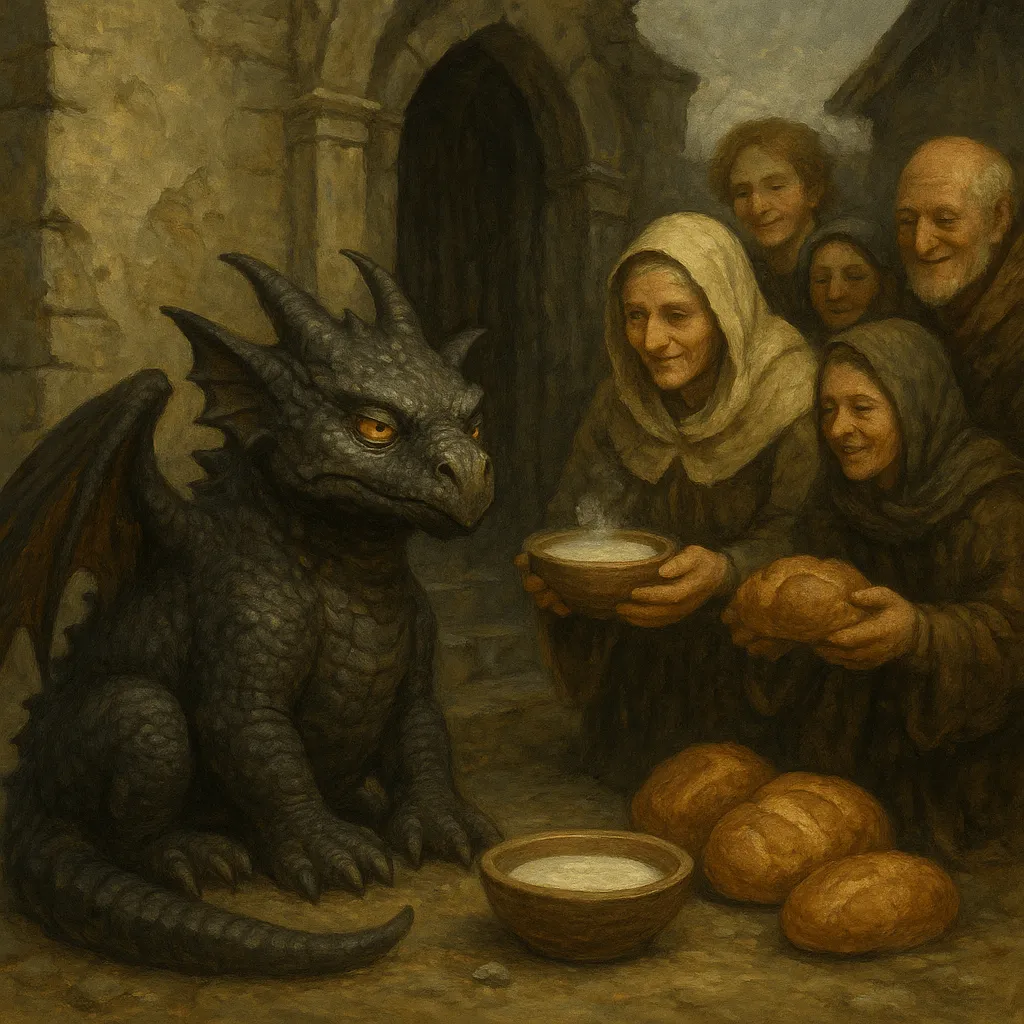 The origins of the Drabwing are debated. Some claim they are the failed offspring of a greater dragon species, mutated by years of exposure to industrial runoff or the magical detritus left behind by the gods’ old wars. Others believe they are simply the natural, diminished cousins of true dragons—descendants of a lineage that chose survival over splendor. Across various cultures, similar creatures appear in stories: the Swiss Tatzelwurm, a stubby dragon that haunts alpine paths; the mining kobolds of Germanic lore, said to live in subterranean passages and demand offerings; or the Chinese earth dragon, which causes tremors but brings fertility to the land. In these myths, the draconic form is not always a destroyer—it is sometimes a stubborn, elemental fixture of nature. The Drabwing, it seems, belongs to this quieter tradition.
The origins of the Drabwing are debated. Some claim they are the failed offspring of a greater dragon species, mutated by years of exposure to industrial runoff or the magical detritus left behind by the gods’ old wars. Others believe they are simply the natural, diminished cousins of true dragons—descendants of a lineage that chose survival over splendor. Across various cultures, similar creatures appear in stories: the Swiss Tatzelwurm, a stubby dragon that haunts alpine paths; the mining kobolds of Germanic lore, said to live in subterranean passages and demand offerings; or the Chinese earth dragon, which causes tremors but brings fertility to the land. In these myths, the draconic form is not always a destroyer—it is sometimes a stubborn, elemental fixture of nature. The Drabwing, it seems, belongs to this quieter tradition.
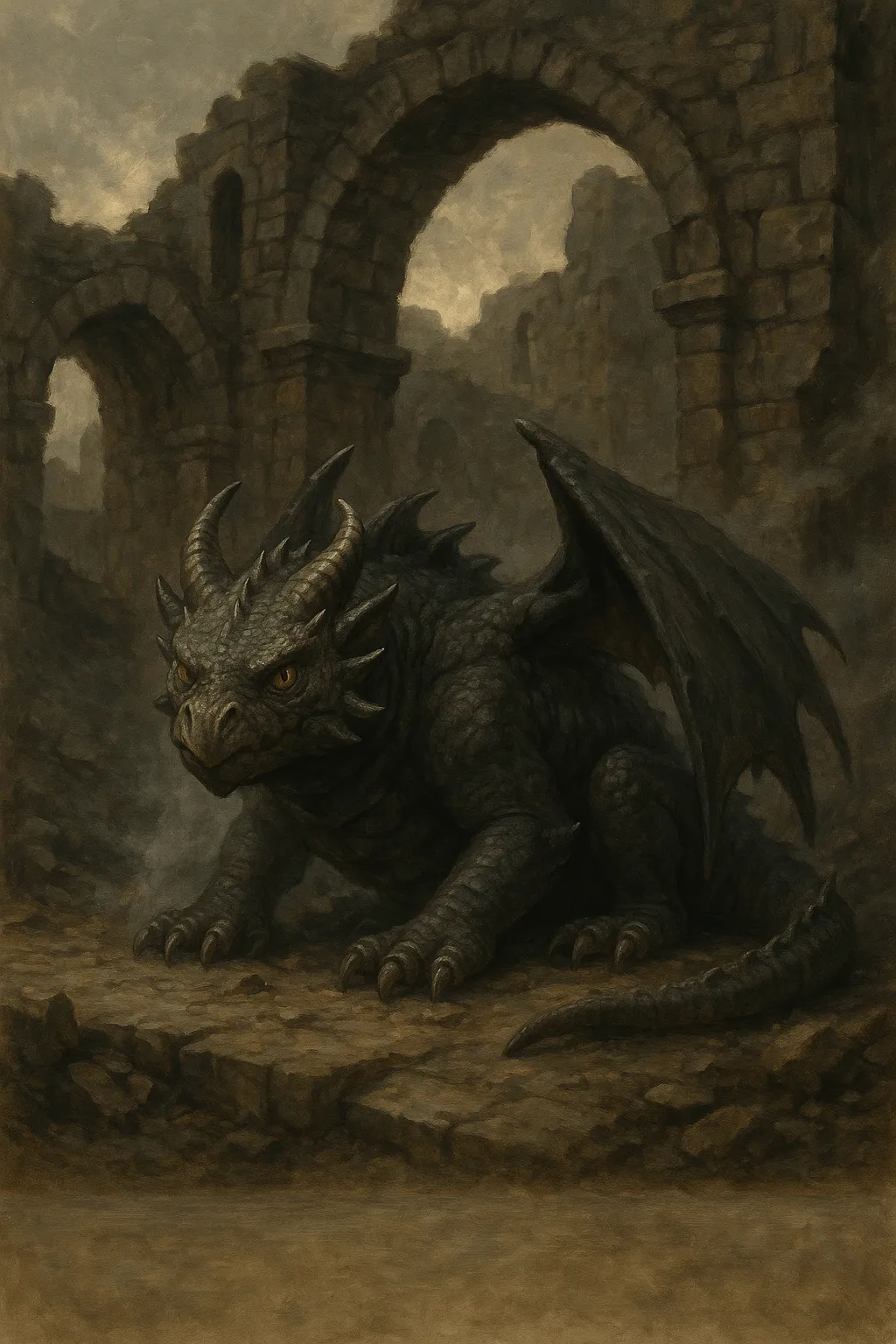 While not intelligent in the scholarly sense, Drabwings have shown problem-solving ability: they can open simple latches, herd chickens into corners before eating them, and remember faces—particularly ones that bring food or wield brooms. One famously occupied the basement of a collapsed chapel for nearly twenty years, becoming something of a local mascot. When the building was finally cleared, townsfolk gathered not to drive the creature off, but to guide it to a new den with offerings of warm milk and burnt loaves. Its reaction was described as “suspiciously regal.”
While not intelligent in the scholarly sense, Drabwings have shown problem-solving ability: they can open simple latches, herd chickens into corners before eating them, and remember faces—particularly ones that bring food or wield brooms. One famously occupied the basement of a collapsed chapel for nearly twenty years, becoming something of a local mascot. When the building was finally cleared, townsfolk gathered not to drive the creature off, but to guide it to a new den with offerings of warm milk and burnt loaves. Its reaction was described as “suspiciously regal.”
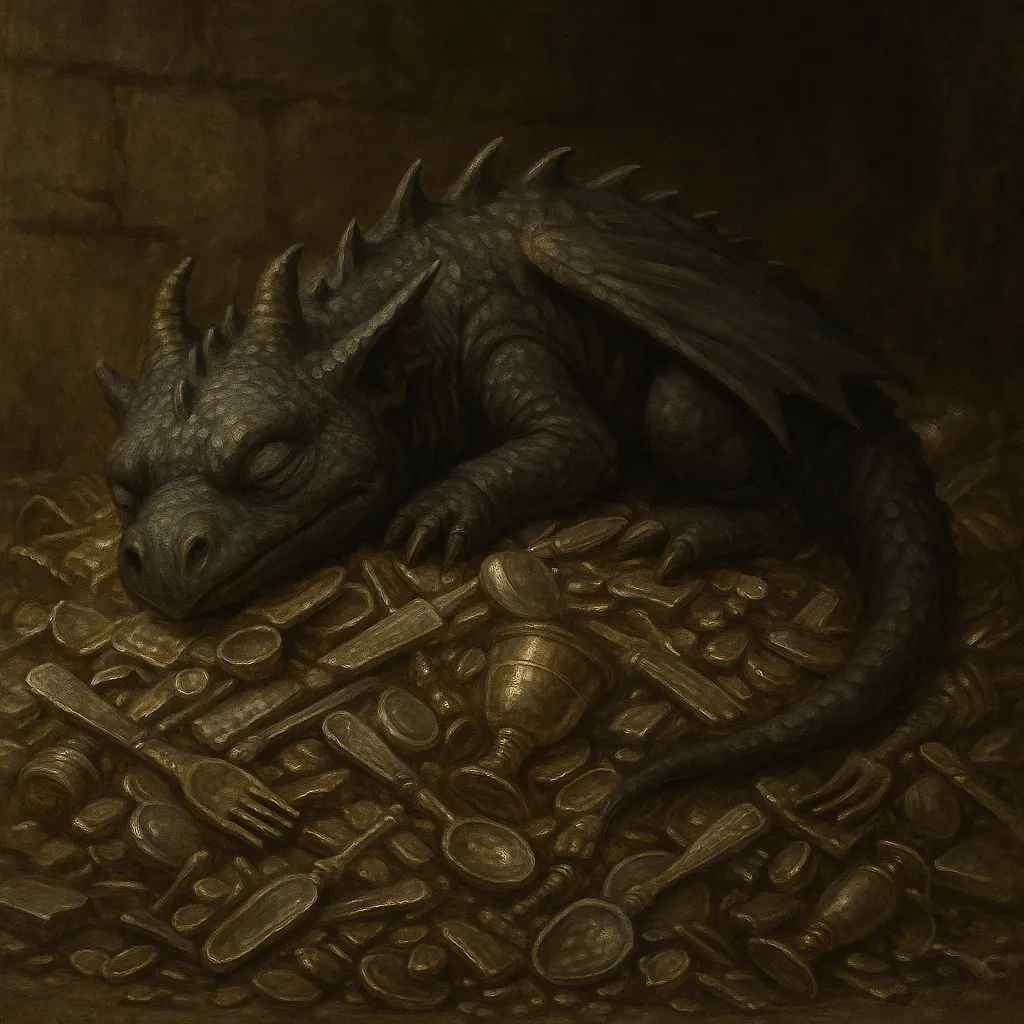 In a world filled with sky-filling leviathans and abyssal horrors, it is easy to dismiss the Drabwing as a joke. But perhaps that is its greatest strength: it is not feared, and so it survives. It does not dazzle, and so it is left alone. In the cracks of ruined kingdoms and in the forgotten vents of old stoneworks, the Drabwing persists—not by power, but by the sheer audacity of existing where it was not invited and making itself at home. In its own smoldering, soot-smeared way, the Drabwing is a creature of dignity. Not a dragon of fire, nor treasure, nor legend—just a dragon, enduring.
In a world filled with sky-filling leviathans and abyssal horrors, it is easy to dismiss the Drabwing as a joke. But perhaps that is its greatest strength: it is not feared, and so it survives. It does not dazzle, and so it is left alone. In the cracks of ruined kingdoms and in the forgotten vents of old stoneworks, the Drabwing persists—not by power, but by the sheer audacity of existing where it was not invited and making itself at home. In its own smoldering, soot-smeared way, the Drabwing is a creature of dignity. Not a dragon of fire, nor treasure, nor legend—just a dragon, enduring.
The following magical heirlooms are fictional and lore-based in nature. Each one is an affiliate link to a real-world item on Amazon that we've hand-selected to complement this artifact's lore.
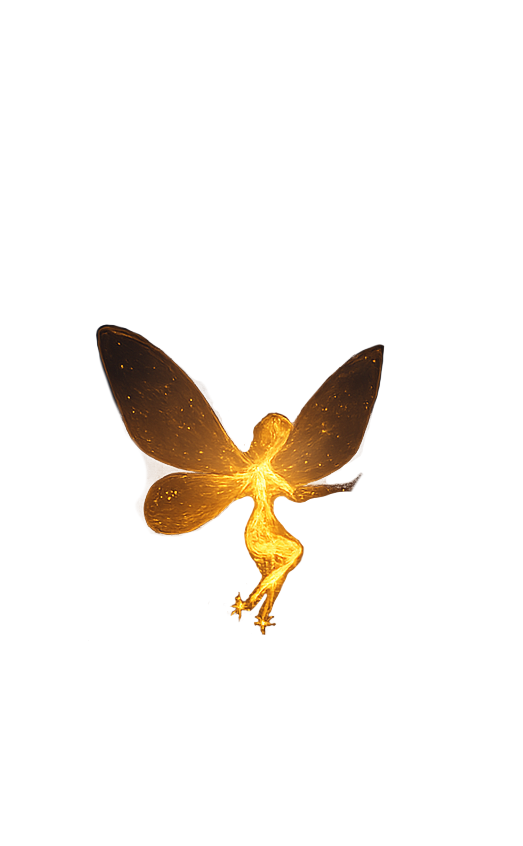
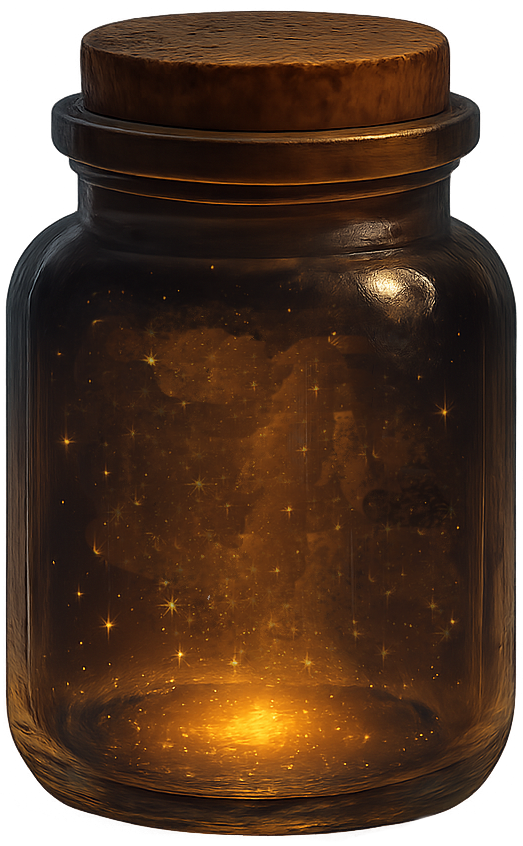
If you click a link and buy an item, we may earn a commission.It costs you nothing extra, but can help keep this little corner of the internet glowing.
What does this mean?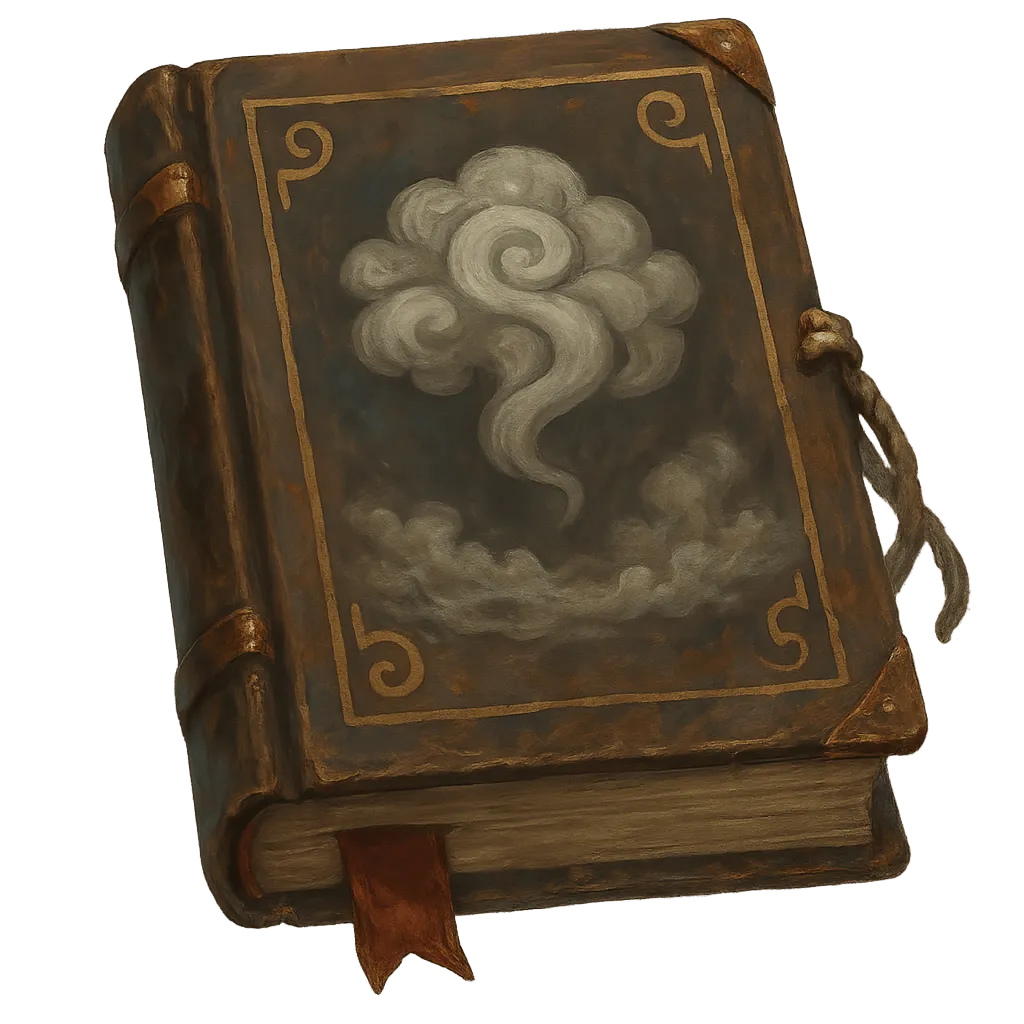
Opens to page one. That’s enough. Now you can’t see the rest.

The latest in state-of-the-art night-time vision.
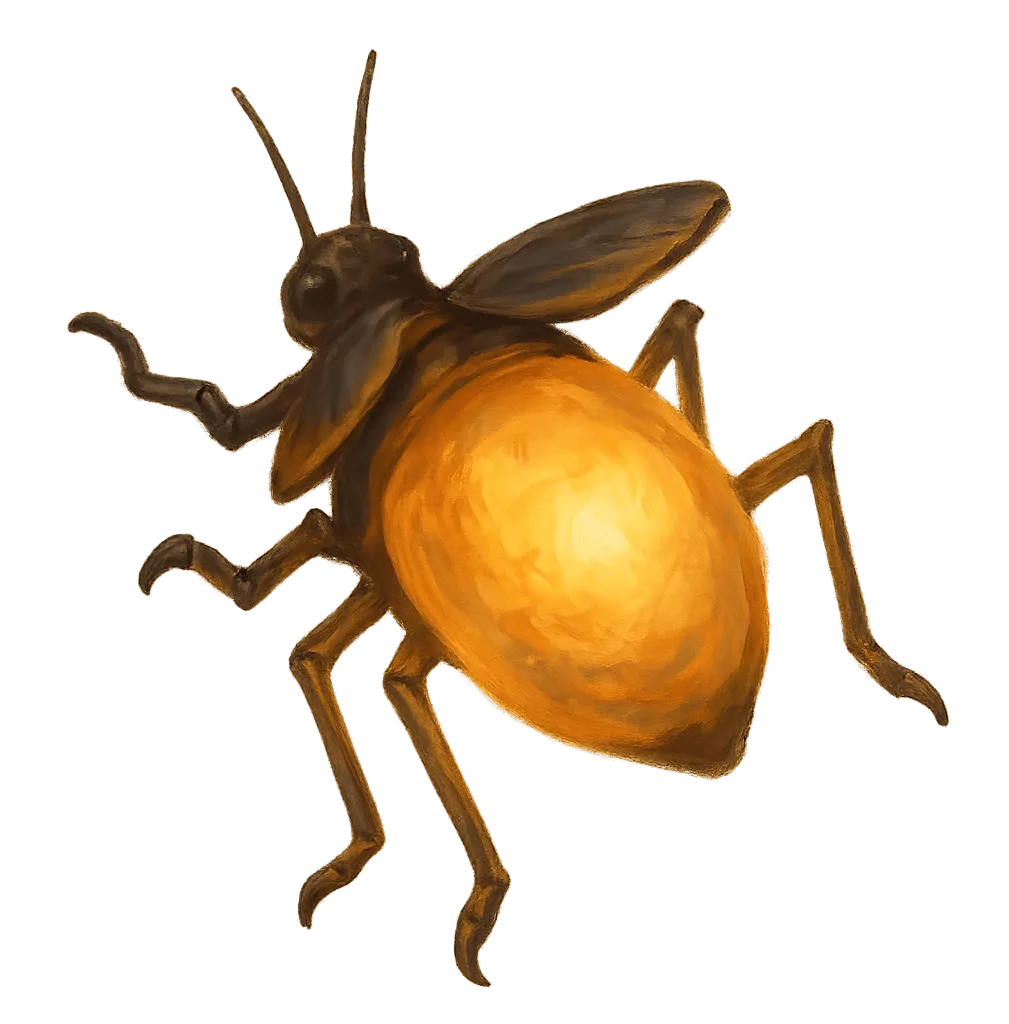
Point. Speak. It sticks. Glows. Mounts itself to walls, ceilings, stubborn in-laws. Removable? Technically.
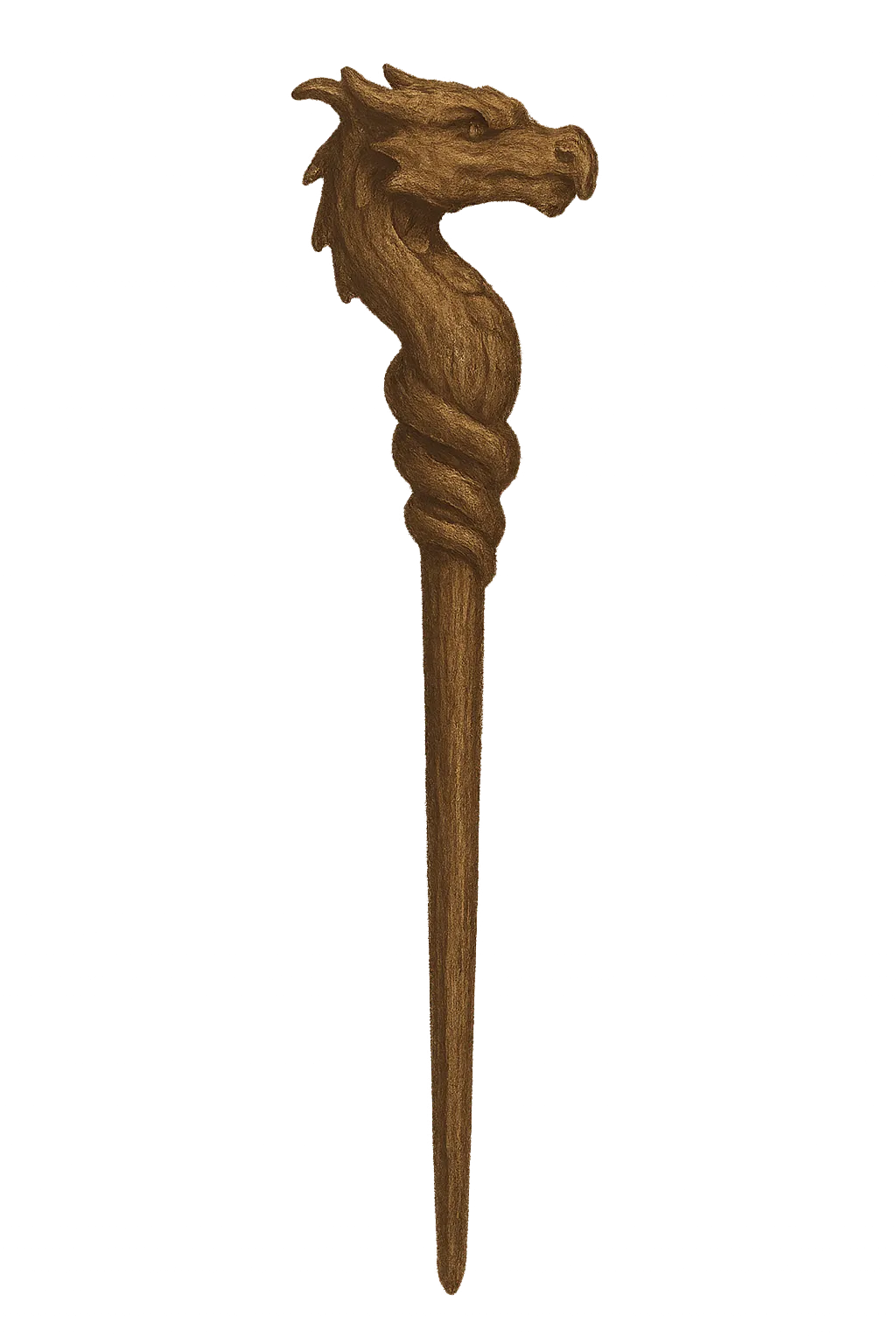
The power of dragon's breath in the palm of your hand.






